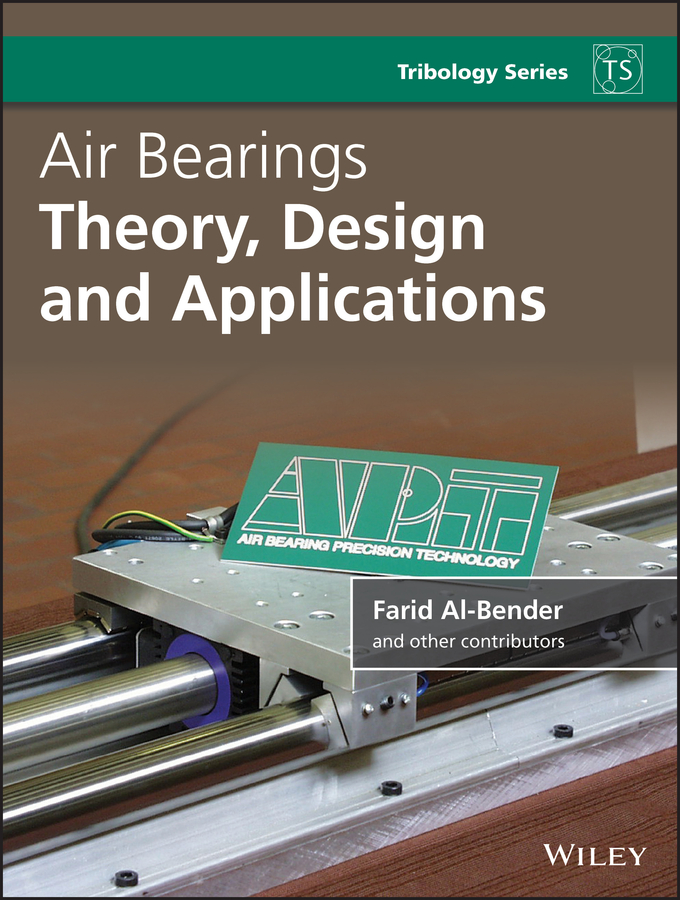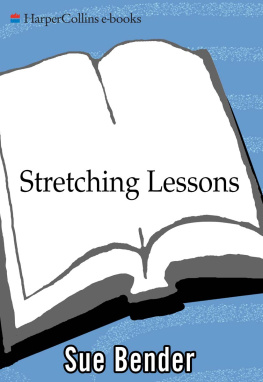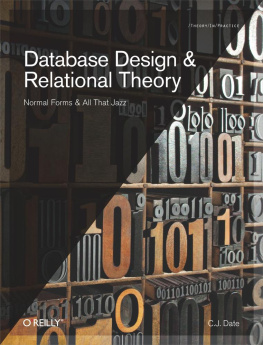Al-Bender Farid - Theory, Design and Applications
Here you can read online Al-Bender Farid - Theory, Design and Applications full text of the book (entire story) in english for free. Download pdf and epub, get meaning, cover and reviews about this ebook. year: 2021, genre: Home and family. Description of the work, (preface) as well as reviews are available. Best literature library LitArk.com created for fans of good reading and offers a wide selection of genres:
Romance novel
Science fiction
Adventure
Detective
Science
History
Home and family
Prose
Art
Politics
Computer
Non-fiction
Religion
Business
Children
Humor
Choose a favorite category and find really read worthwhile books. Enjoy immersion in the world of imagination, feel the emotions of the characters or learn something new for yourself, make an fascinating discovery.

- Book:Theory, Design and Applications
- Author:
- Genre:
- Year:2021
- Rating:4 / 5
- Favourites:Add to favourites
- Your mark:
- 80
- 1
- 2
- 3
- 4
- 5
Theory, Design and Applications: summary, description and annotation
We offer to read an annotation, description, summary or preface (depends on what the author of the book "Theory, Design and Applications" wrote himself). If you haven't found the necessary information about the book — write in the comments, we will try to find it.
Theory, Design and Applications — read online for free the complete book (whole text) full work
Below is the text of the book, divided by pages. System saving the place of the last page read, allows you to conveniently read the book "Theory, Design and Applications" online for free, without having to search again every time where you left off. Put a bookmark, and you can go to the page where you finished reading at any time.
Font size:
Interval:
Bookmark:

- Chapter 5
- Chapter 6
- Chapter 8
- Chapter 9
- Chapter 10
- Chapter 11
- Chapter 12
- Chapter 14
- Chapter 15
- Chapter 17
- Chapter 1
- Chapter 2
- Chapter 3
- Chapter 4
- Chapter 5
- Chapter 6
- Chapter 7
- Chapter 8
- Chapter 9
- Chapter 10
- Chapter 11
- Chapter 12
- Chapter 13
- Chapter 14
- Chapter 15
- Chapter 16
- Chapter 17
Farid AlBender
KU Leuven, Department of Mechanical Engineering
Leuven
Belgium

This edition first published 2021
2021 John Wiley & Sons Ltd
All rights reserved. No part of this publication may be reproduced, stored in a retrieval system, or transmitted, in any form or by any means, electronic, mechanical, photocopying, recording or otherwise, except as permitted by law. Advice on how to obtain permission to reuse material from this title is available at http://www.wiley.com/go/permissions.
The right of Farid AlBender to be identified as the author of this work has been asserted in accordance with law.
Registered Offices
John Wiley & Sons, Inc., 111 River Street, Hoboken, NJ 07030, USA
John Wiley & Sons Ltd, The Atrium, Southern Gate, Chichester, West Sussex, PO19 8SQ, UK
Editorial Office
The Atrium, Southern Gate, Chichester, West Sussex, PO19 8SQ, UK
For details of our global editorial offices, customer services, and more information about Wiley products visit us at www.wiley.com.
Wiley also publishes its books in a variety of electronic formats and by printondemand. Some content that appears in standard print versions of this book may not be available in other formats.
Limit of Liability/Disclaimer of Warranty
In view of ongoing research, equipment modifications, changes in governmental regulations, and the constant flow of information relating to the use of experimental reagents, equipment, and devices, the reader is urged to review and evaluate the information provided in the package insert or instructions for each chemical, piece of equipment, reagent, or device for, among other things, any changes in the instructions or indication of usage and for added warnings and precautions. While the publisher and authors have used their best efforts in preparing this work, they make no representations or warranties with respect to the accuracy or completeness of the contents of this work and specifically disclaim all warranties, including without limitation any implied warranties of merchantability or fitness for a particular purpose. No warranty may be created or extended by sales representatives, written sales materials or promotional statements for this work. The fact that an organization, website, or product is referred to in this work as a citation and/or potential source of further information does not mean that the publisher and authors endorse the information or services the organization, website, or product may provide or recommendations it may make. This work is sold with the understanding that the publisher is not engaged in rendering professional services. The advice and strategies contained herein may not be suitable for your situation. You should consult with a specialist where appropriate. Further, readers should be aware that websites listed in this work may have changed or disappeared between when this work was written and when it is read. Neither the publisher nor authors shall be liable for any loss of profit or any other commercial damages, including but not limited to special, incidental, consequential, or other damages.
Library of Congress CataloginginPublication Data applied for
HB ISBN: 9781118511497
Cover image: Courtesy of Farid AlBender
Cover design by Wiley
To the memory of my parents
To Katherine
To the children
| Name | Affiliation | Contribution |
| Tobias Waumans | Xeryon, Leuven, Belgium | |
| Peter Vleugels | ASML BV, Netherlands | Major part of |
| Steven Cappa | CAPPA precision engineering, Belgium | Major part of |
| Gorka Aguirre | IDEKO, Spain | |
| Marius Nabuurs | KU Leuven, Belgium |
| Figure 1.1 | Classification of air bearings according to pressure generation (dynamics) and morphology (kinematics). The bottom row depicts compliantsurface bearings. |
| Figure 2.1 | General bearing configuration and notation ( and and  denote respectively the supply and atmospheric pressure). Source: Adapted from AlBender F 1992. denote respectively the supply and atmospheric pressure). Source: Adapted from AlBender F 1992. |
| Figure 2.2 | Schematic flow configuration of inlet flow to EP bearing. (Not to scale.) Source: AlBender F 1992. |
| Figure 2.3 | (a) Feed flow and its transition to (b) film flow. |
| Figure 2.4 | Comparison between potential flow in the entrance region and ideal sink flow. Source: AlBender F 1992. |
| Figure 2.5 | Entrance flow into a slider bearing: open shear flow transition to CouettePoiseuille channel flow. |
| Figure 2.6 | Film flow configuration for EP case. (Not to scale.) Source: AlBender F 1992. |
| Figure 2.7 | Film flow configuration for the sliderbearing case. (Not to scale.) |
| Figure 2.8 | Circular centrally fed bearing geometry and notation. Source: AlBender F 1992 |
| . | |
| Figure 3.1 | Schematic and terminology of the entrance problem. (Not to scale.) |
| Figure 3.2 | A method of separation of variables for the solution of laminar boundary layer equations of narrow channel flows. Journal of Tribology 114, 630636. 1992 by permission of ASME. |
| Figure 3.3 | Velocity profile functions in forward and reverse flow. Source: Al-Bender and Van Brussel, 1992 by permission of ASME. |
| Figure 3.4 |  . Source: Al-Bender and Van Brussel, 1992 by permission of ASME. . Source: Al-Bender and Van Brussel, 1992 by permission of ASME. |
| Figure 3.5 | Velocity and pressure development in the entrance of a plane channel. Source: Al-Bender and Van Brussel, 1992 by permission of ASME. |
| Figure 3.6 | Radial channel flow: Notation. Source: Al-Bender and Van Brussel, 1992 by permission of ASME. |
| Figure 3.7 | Qualitative streamline field for (a) moderate taper (large flow rate) and (b) large taper (small flow rate) sliders and associated entrance velocity profiles. |
| Figure 3.8 | Development of the flow upstream of a slider bearing; Blasius BL (a) versus Skiadis BL (b). (Not to scale.) |
| Figure 3.9 | Normalised velocity profile of the Sakiadis boundary layer. |
| Figure 3.10 | Shearflow entrance into a plane uniform gap channel. Development of (a) velocity profile and (b) pressure (including head loss). (Not to scale) |
Font size:
Interval:
Bookmark:
Similar books «Theory, Design and Applications»
Look at similar books to Theory, Design and Applications. We have selected literature similar in name and meaning in the hope of providing readers with more options to find new, interesting, not yet read works.
Discussion, reviews of the book Theory, Design and Applications and just readers' own opinions. Leave your comments, write what you think about the work, its meaning or the main characters. Specify what exactly you liked and what you didn't like, and why you think so.








